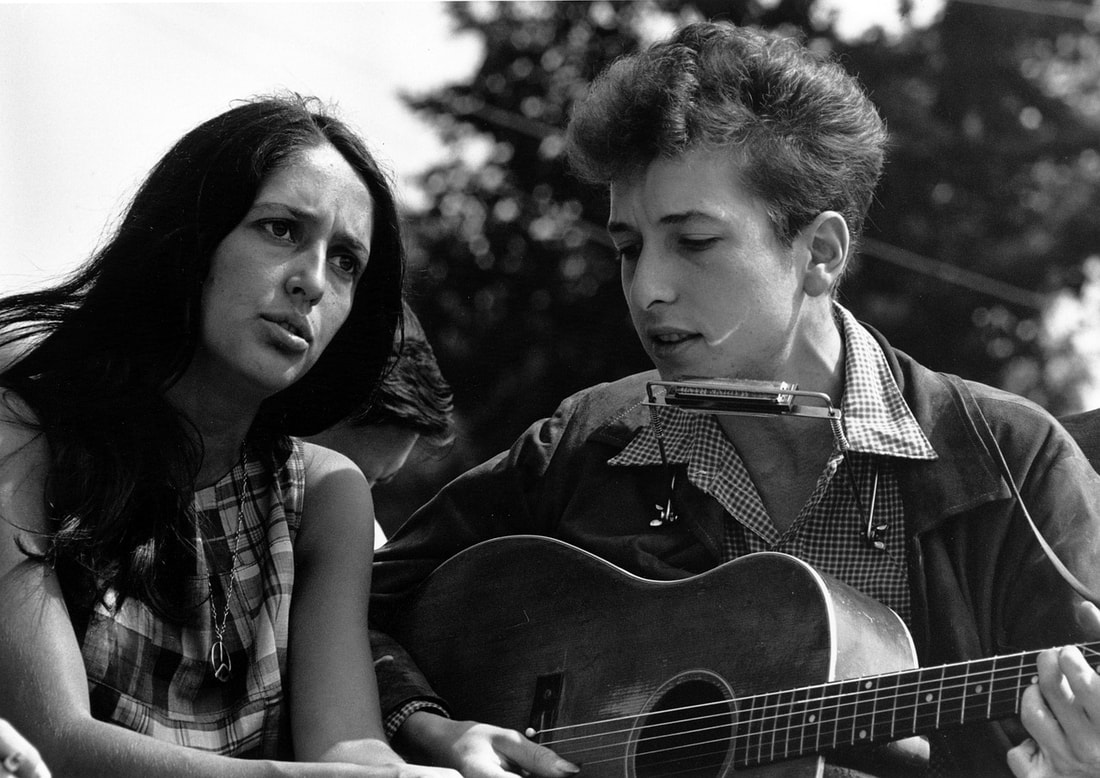|
Image by WikiImages from Pixabay I watched A Complete Unknown last week, a film about Bob Dylan’s early career, alongside someone who remembers it all. Dylan—and especially Joan Baez—were the soundtrack of their youth, a time when anything seemed possible. And yet, when I talk to them about systemic change today, they tell me it won’t make a difference.That juxtaposition is deeply human. My movie companion carries the memory of a time when collective action felt transformative, yet they now feel disillusioned about lasting change. I can relate.
Earlier in my career, I worked on large corporate transformation projects that never quite got off the ground—just as change was about to happen, entire organisations or industries would restructure. Again and again, the cycle repeated. I understand how those who lived through hopeful eras might feel worn down by the persistence of systemic issues. The idealism of youth often collides with the reality of entrenched systems of power. For the youth of the ’60s, I can understand how Dylan and Baez’s music may now evoke nostalgia rather than the sense of possibility they once inspired. And yet, Dylan himself resisted being cast as a figurehead for social change. Over time, his music evolved from protest anthems to introspective and abstract works, reflecting the complexity and unpredictability of progress. His later songs grapple with existential themes, the passage of time, and history's cyclical nature rather than delivering direct calls to action. Dylan seemed to understand that change is rarely linear or permanent. Snakes, Ladders and the Politics of Progress This lesson feels particularly relevant in politics. For instance, the government elected last year in New Zealand—on a three-year term—is busy undoing many major projects the previous administration had set in motion:
While specific to New Zealand, these examples reflect a global pattern. Governments often swing between priorities, undoing what was previously done—often at great cost. It’s a stark reminder that progress is not a straight line. Cycles of Hope and Resistance The optimism of the 1960s stands in stark contrast to today’s divisions, where struggles for equality and justice seem overshadowed by persistent power dynamics and inequality. I think it just means we’re at a different part of an ongoing cycle. Dylan’s early work became the soundtrack of the civil rights and anti-war movements, capturing the urgency and hope of a generation. Songs like Blowin' in the Wind and The Times They Are A-Changin’ resonated deeply because they articulated a collective longing for change. It was an era when hope seemed infinite, in contrast to today, where the rise of authoritarian leaders like Trump and Putin makes it feel as though nothing ever takes firm hold—that we are caught in an endless cycle of control and resistance. And yet, movements for peace, justice, and equality continue to rise, even in the face of setbacks. This persistence speaks to a deeper truth: the human spirit is resilient. The "footing" may not always feel firm, but each cycle leaves behind lessons, tools, and inspirations that shape future efforts. It’s easy to feel disillusioned when change seems fleeting. But if history teaches us anything, it’s that transformation is always possible. The winds of change may not blow in a straight line, but they are always moving. In personal growth, I call this the upward spiral of transformation. When I first became conscious of unhelpful patterns in my own thinking and emotions, I wanted to fix them immediately. But over time, I’ve come to see it as a gentler process—more like the ebb and flow of the tide than a single, definitive shift. The same is true for progress on a larger scale. Think about your own life—where have you climbed the ladder, only to slide back down? And yet, if you zoom out, can you see that despite the setbacks, you are still further along than when you began? If this holds true for us as individuals, then surely it must also hold true for society. The world our children and grandchildren inherit will be shaped by the steps we take today—no matter how small. Change may not always be immediate, but it always matters. The times may keep changing, but so do we. If you're reading this on Medium, LinkedIn, or another platform and would like to receive regular updates directly (and reliably) rather than relying on algorithms, you can subscribe to my blog to be the first to receive new posts. Each week, I share personal reflections and insights that connect what's happening in my life with the topics I explore If you enjoyed this post, you might also like The Hidden Power of Your Conversations: How they are Shaping the World, How to Appreciate Our Differences Enough to Admire and Want to Embrace Them and Beyond the Silver Bullet - Embrace the Upward Spiral of Transformation.
2 Comments
Beth
2/3/2025 02:40:49
Your thoughts and writing have become eloquent and smooth.
Reply
Shona
2/4/2025 14:36:29
Thank you! It’s perhaps a reflection of the personal work I’ve done to reclaim my authentic self. The more I let go of old patterns and conditioning, the clearer and more natural my self-expression feels. I truly believe we all have something unique to share—the world needs our authentic voices
Reply
Your comment will be posted after it is approved.
Leave a Reply. |
This is a two-step sign-up process, you will have to verify your subscription by clicking the link in the email you should receive after clicking this 'Subscribe' button. If you do not receive the email please check your Junk mail.
By signing up you will only receive emails from shonakeachie.com related to Shona's Blog and you can unsubscribe at any time, thank you. Please note if you are using the Google Chrome browser and want to subscribe to the RSS Feed you will first need to get an RSS plugin from the Chrome Store.
|

 RSS Feed
RSS Feed